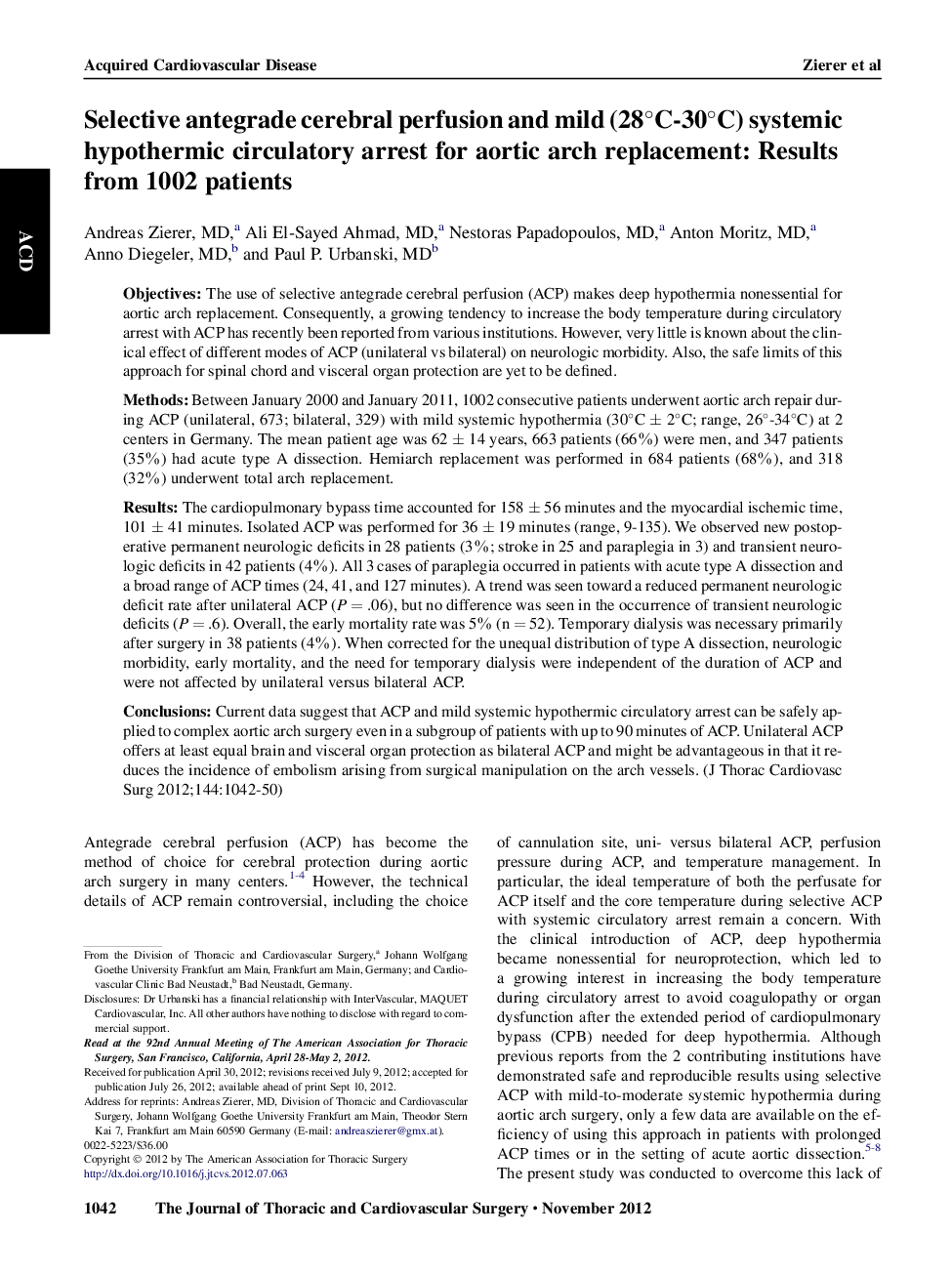| کد مقاله | کد نشریه | سال انتشار | مقاله انگلیسی | نسخه تمام متن |
|---|---|---|---|---|
| 2981517 | 1578630 | 2012 | 9 صفحه PDF | دانلود رایگان |

ObjectivesThe use of selective antegrade cerebral perfusion (ACP) makes deep hypothermia nonessential for aortic arch replacement. Consequently, a growing tendency to increase the body temperature during circulatory arrest with ACP has recently been reported from various institutions. However, very little is known about the clinical effect of different modes of ACP (unilateral vs bilateral) on neurologic morbidity. Also, the safe limits of this approach for spinal chord and visceral organ protection are yet to be defined.MethodsBetween January 2000 and January 2011, 1002 consecutive patients underwent aortic arch repair during ACP (unilateral, 673; bilateral, 329) with mild systemic hypothermia (30°C ± 2°C; range, 26°-34°C) at 2 centers in Germany. The mean patient age was 62 ± 14 years, 663 patients (66%) were men, and 347 patients (35%) had acute type A dissection. Hemiarch replacement was performed in 684 patients (68%), and 318 (32%) underwent total arch replacement.ResultsThe cardiopulmonary bypass time accounted for 158 ± 56 minutes and the myocardial ischemic time, 101 ± 41 minutes. Isolated ACP was performed for 36 ± 19 minutes (range, 9-135). We observed new postoperative permanent neurologic deficits in 28 patients (3%; stroke in 25 and paraplegia in 3) and transient neurologic deficits in 42 patients (4%). All 3 cases of paraplegia occurred in patients with acute type A dissection and a broad range of ACP times (24, 41, and 127 minutes). A trend was seen toward a reduced permanent neurologic deficit rate after unilateral ACP (P = .06), but no difference was seen in the occurrence of transient neurologic deficits (P = .6). Overall, the early mortality rate was 5% (n = 52). Temporary dialysis was necessary primarily after surgery in 38 patients (4%). When corrected for the unequal distribution of type A dissection, neurologic morbidity, early mortality, and the need for temporary dialysis were independent of the duration of ACP and were not affected by unilateral versus bilateral ACP.ConclusionsCurrent data suggest that ACP and mild systemic hypothermic circulatory arrest can be safely applied to complex aortic arch surgery even in a subgroup of patients with up to 90 minutes of ACP. Unilateral ACP offers at least equal brain and visceral organ protection as bilateral ACP and might be advantageous in that it reduces the incidence of embolism arising from surgical manipulation on the arch vessels.
Journal: The Journal of Thoracic and Cardiovascular Surgery - Volume 144, Issue 5, November 2012, Pages 1042–1050